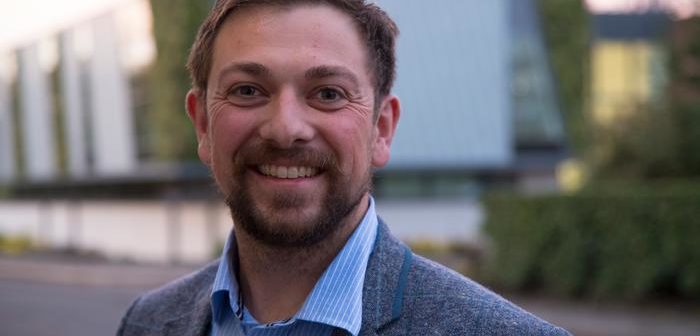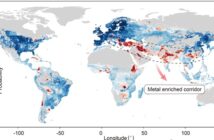Harper Adams University mechatronics researcher Jonathan Gill has been awarded a Nuffield Farming Scholarship to look into how automation in agriculture can be embraced.
The Nuffield Farming Scholarships are awarded to around 20 individuals each year providing the opportunity to research topics of interest in farming, food, horticulture or rural sectors. Scholars are able to travel anywhere in the world, visiting one or more countries in order to further knowledge and understanding, with a view to advancing their respective industries.
Jonathan said: “Research has shown that human operation of agricultural machines is less accurate than automated systems. The future farm will need to address requirements of higher productivity and ability to produce higher yields with less inputs. Unfortunately these issues cannot be solved by just one solution.
“Automation is going to play a key role in the future and I’d like to see how we can embrace this change globally. For example, a drone can spray where a standard wheeled sprayer cannot, with higher accuracy and produce no compaction.
“My background is quite unique due to working in a diverse range of environments and jobs, including operating unmanned vehicles and being a qualified drone pilot. I’ve seen many things across industry. My unique background and training allows me to have a different prospective on the way things have been done.
“I chose to diversify into agriculture as I felt that I could provide something of benefit. I’ve been a part of the industry and can truly understanding the troubles and difficulties people are experiencing. I’ve a huge respect for UK agriculture and would like us to keep innovating and improving how we get things done.
“In addition, I’ve always had a passion for energy and the saving of it. Now is the time that I can probably have an impact on these aspects to make things work better for us.”
Jonathan is part of the Hands Free Hectare team, which this year successfully drilled, tended and harvested a crop without operators in the driving seats of the vehicles or agronomists on the ground.
Due to this project, and through personal interest, Jonathan has been watching a number of companies investing in automation systems around the world.
“During my travels as part of this scholarship, I hope to witness how various automated systems can reduce costs, lower energy consumption and provide environmental benefits,” added Jonathan. “I’ll be visiting some of the many companies I’ve been watching over the years. I hope to talk, learn and observe what I consider some of the world’s leaders in their work. This includes companies in America, Canada, the Netherlands, China and Japan. I’d also like to visit the autonomous wheeled platforms at Rio Tinto in Australia and the drone friendly test facility in New Zealand.
“Even though working on the Hands Free Hectare has been an incredible experience, it has made me concentrate on a very small aspect of arable farming and I now feel that it’s time for me to expand myself back out and see what’s going on around the world. I want to be able to see around me and look at what other industries are doing; such as the automotive industry and drones used for surveying.
“There’s lots of aspects that can be brought together and that’s what Harper’s always been about; working in applied technologies and using them in a different area. I share this strength by being a robotics engineer. It doesn’t take the most expensive technology to achieve amazing results; it can just take a little bit of ingenuity to mechanise.




